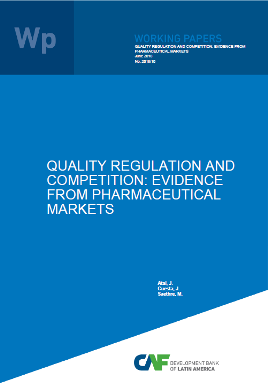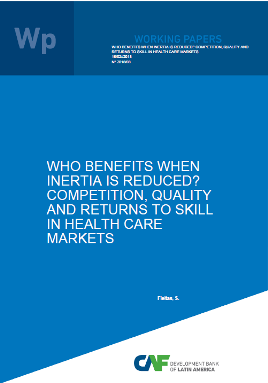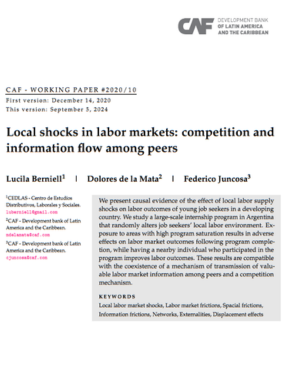Quality Regulation and Competition: Evidence from Pharmaceutical Markets
Resumo
We study the equilibrium effects of quality regulation on market outcomes by exploiting the staggered phase-in of bioequivalence requirements for generic drugs in Chile. While the objective of the regulation was to increase the perceived quality of generics to reduce vertical differentiation and enhance price competition, we find mostly adverse effects. Even if a large number of drugs obtained the quality certification mandated by the regulation, we estimate that the number of drugs in the market decreased by 13% as a result of the policy. Moreover, we find that prices increased on average by 13% as well as no significant effects on the market share of generics. These adverse effects were mostly concentrated in molecules with small market size. Put together, our results suggest that the intended effects of the regulation on competition through increased (perceived) quality of generics were overturned by adverse competitive effects arising from the costs of complying with the regulation.
Assunto
País / Región
Data
2018-06Cite esta publicação
Item que pertence à coleção
Autor
Atal, Juan PabloCuesta, Jose Ignacio
Sæthre, Morten
Items Relacionados
Who benefits when inertia is reduced? Competition, quality and returns to skill in health care markets
Increased competition may lead to incentives for firms to increase quality by incorporating higher quality inputs. This is particularly relevant in ...
Annual Report 2008
Expansion of CAF’s Latin American scope: the incorporation of Panama and Paraguay as full members in 2008 –which will result in an increase of paid-in ...
Local shocks in labor markets: competition and information flow among peers
We present causal evidence of the effect of local labor supply shocks on labor outcomes of young job seekers in a developing country. We study a large-scale ...






